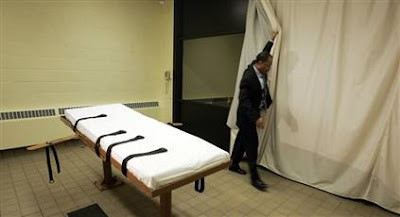The Chain Reaction
When I think of anything, I come to the conclusion that it is as a result of something happening previously. Anything that pops into my mind I can relate it to an action that happened before it. For example, a person can have a third degree burn because they touched a hot stove. A person can gain weight because they have high levels of stress and turn to food for comfort. I can feel excitement because neurons in my body sensed excitement when I received a phone call from a guy I really like. Whatever it is, every action causes another action; the reaction or second action can be good or bad.
Knowing about this chain reaction of things I began to think about how my present actions will affect my future. I have a tendency to brush my thoughts aside when I know that I am doing something bad but always seem to regret my decisions. I constantly ask myself “What was the point of doing that if you know it will not result in anything positive.” I believe it stems from the human being tendency to be ignorant and having to find out things the hard way. As I begin to grow, I am starting to realize that there is not much more room for ignorant mistakes because they can have major consequences. It seems like most mistakes children and teenagers make are overlooked and not giving too much thought; it is seen as a learning process. There is little room for error when a person becomes an adult.
(This is an image of the death row table where death row inmates receive their lethal injection. Some mistakes are irreversible and are not easily forgiven. Death row inmates commit the ultimate mistake with the worst consequence, death. How ever long it took them to commit their crime, which is sometimes a matter of just five minutes, has caused them to lose their life. Maybe if they would have thought about the results of actions they may not have to be subjected to capital punishment.)
Reading Medicine and Compassion I am learning various techniques doctors can use when dealing with patients, but the one that stands out to me is the necessity to fix yourself first, to show compassion towards yourself before you transfer that compassion to patients. “In order to guide someone else, you must have knowledge based on personal experience.” (Rinpoche and Shlim, 110) Basically before you try to teach someone or express compassion to them, you have to have previous experience of knowing how to show or personally receiving such emotions. This concept can be applied to many things in life. For example, before someone can be a physical trainer, they have to endure the many exercises or techniques they plan to teach their clients. A karate teacher has to complete several test before they become a black belt and with such high rank they are qualified to pass on their skills to others.
I am happy that this novel explores ways to soothe patients during a very emotional and traumatic time of their life. I am more interested in the ways of preventing that patient from being admitted into the hospital. I know they have an illness that is taking a dangerous toll on their life, but what if that could have been prevented. My biology class has taught me that some heart diseases are brought on by behavioral factors. For example, Coronary Artery Disease can be caused by bad diets.
More specifically I want to know if such practices like meditation and relaxation were taught at younger ages, would there be a decrease in the number of behavioral diseases. I wonder if we learned to let things go and stress less could we indeed live longer. Decades before this one individuals lived to old ages like ninety and eighty years old. I believe the difference between our generation and theirs is the fact we have a lot more meaningless things to do. There are just things we consume our lives around, and they have no real contribution to the good of us like constantly stalking celebrities. Yes, it is interesting to know what other dumb mistake Britney Spears has made, but her life has no effect on ours personally. I believe there is no real focus on the well being of ourselves mentally and physically, our body and our mind.
(This is an image of young children meditating. It is quite a site because children are normally running around getting into everything. This is outside the norm, which is what needs to happen for individuals to do something they are not use to. Furthermore, to train the mind to go to a relaxed, it needs to start early so it will eventually be done with out much thought.)
“So the obvious question is what method could reduce suffering, or bring about freedom from suffering altogether, for ourselves and others?” (Rinpoche and Shlim, 129) I do not believe all the world’s problems would be solved if we stressed less and focused more on our mind, but it would definitely help. The constant pressure for a desired result drives us crazy; we are in frenzy during the process of trying to produce a certain product and are frenzied when it does not come out as planned. Also, constantly thinking “Is this going to lead to bad health, or is this going to result in me dying in four years is stressful?” But if we thought more about the consequences of our actions, we would not have to rely on doctors to show us compassion when our bad mistakes have caught up to us.

No comments:
Post a Comment